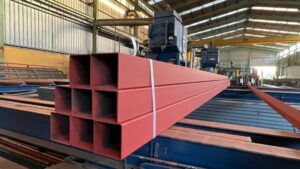
Eurofer, the European steelmakers’ association, is asking for the EU steel trade policy to shift into “a crisis mode” in response to the 50% drop in steel demand since the start of the COVID-19 pandemic, the executives of major EU steelmaking companies said in a statement published by Eurofer on June 8.
The statement was Eurofer’s response to the changes in the European steel import safeguard system, proposed by the European Commission. The new solutions by the EC are insufficient and “unhelpful” in tackling the sharp decline in steel demand, Eurofer said, demanding a considerable reduction in the tariff-free import quota size.
In addition, the transfer of unused quotas to subsequent quarters and the access to the residual quotas for countries with their own quotas ought to be prevented, Eurofer stated.
In its notification from May 29, the EC proposed to bring back country-specific import allocations for hot-rolled coil. It also suggested changes focused on making the import flow of various steel products more evenly spread out between quarters and protecting some of the smaller export countries from being crowded-out from the residual quota by bigger countries.
The EC’s proposals did not mention a radical reduction in the tariff quota size, however, which is what Eurofer members are calling for.
Russia, China, India and Indonesia have been mentioned among those countries, which are posing the risk to the EU steel producers.
Eurofer claimed that the current proposals by the EC are not sufficient and could boost the share of imports in the EU market further.
Also, without tougher measures on imports, the targets to reduce the EU steel industry’s carbon footprint, as set the European Green Deal, are questionable, according to Eurofer.
“If the European steel sector is wiped out by imports, we will simply not be there to lead emissions reductions from the global steel industry,” the statement said.
— Wojtek Laskowski




